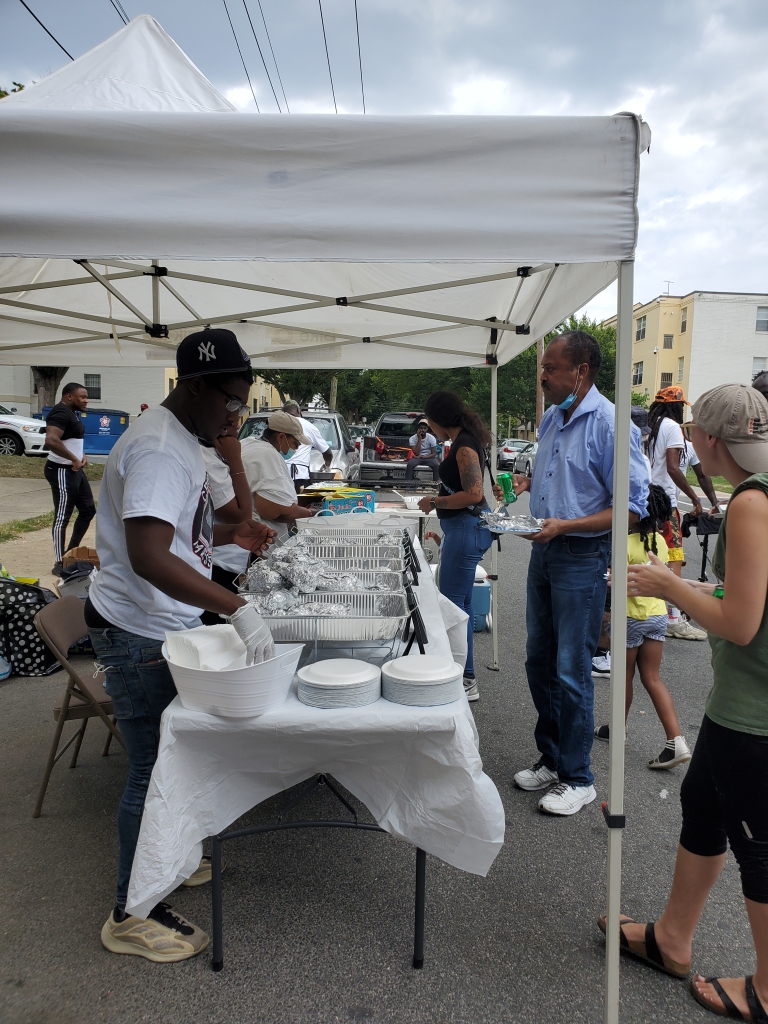
The Fight for Brookland Manor, Part Two
The DC Council Office on Racial Equity (CORE) has assessed Mayor Bowser’s City Comprehensive Plan as racist in impact. Why? One big premise of the Mayor’s Comp Plan changes is that more high-rise and dense development will create the engine to support affordable housing. For those of us who grew up in DC, we’ve only seen the opposite come true, displacing at least 40,000 Black residents. Even if the Comp Plan is successful in carving out a small number of affordable units through inclusionary zoning (a program that has produced just 200 affordable units per year since its inception), will dense developments really create homes for Black families of all ages? That depends on whether the District chooses to reverse course and include diverse community stakeholders in the detailed planning and implementation of development
.
A real home is a place offering community, security, affordability with dignity and respect. Chocolate City has long been this type of home for Black, Brown, and Immigrant people, but that is changing. What we need is not just defined by numbers of units and AMI charts. Racial equity demands that we set our sights on true justice. How do we create housing where poor and working-class Black, Latinx, and Asian families can feel respected, afford the cost, engage in community, have long term tenure, and allow their children to remain if they choose
To achieve these substantial goals of respect, affordability, community and stability will require community and resident involvement in planning this housing, not simply checking some boxes on the developer’s playbook. Real-life issues that matter to residents include: building units that can accommodate multi-generational families; getting respect from the property manager regardless of income or race; accessibility for all ages; having management policies that allow extended family to visit and stay temporarily when emergencies arise; having public space where residents can hang out, throw BBQs and not be policed by rigid rules.
The consequences of business as usual are on display at Brookland Manor, a long standing working class Black community in Northeast DC slated for redevelopment. The owner, MidCity Financial, has deprived residents of each and every benefit listed above in an effort to clear out the property. Residents are forced to live in slum-like conditions, barred from green spaces by armed private security guards and split apart from family members as MidCity works to empty 3, 4-, and 5-bedroom apartments. For the small number of families who survive this assault, they will likely face a hostile environment in the predominantly high income, high-rise developments, depriving them once again of the respect, community, and stability needed for a good quality of life.
To see into the future, we can look to Jefferson Marketplace at 7th and Q St. N.W, the high density mixed income development and home of the former Kelsey Gardens affordable community. Long term Shaw residents there were displaced through the sale of the former property in 2007, and although all 51 households had a right to return only 18 did return after a 7 year wait. Those who moved back did not find the old community they once had, but instead a sometimes hostile property management regime which made them feel unwelcome for not fitting the profile of the new market rate tenants.

According to several returning residents, the management issues about which African Americans experienced conflict include: withholding of certain common recreation spaces for these families; restrictions on family visits and temporary stays; hostile questioning of guests and feeling of “surveillance” by management; uneven administration of Section 8 voucher rules sometimes leading to loss of a voucher; and prohibition of Tenant Association meetings.
Creating a smaller 100% affordable co-op or low-cost rental housing could be one better solution. The District already is home to 96 affordable co-ops integrated into neighborhoods in all 8 wards without creating “concentrated poverty.” More of this type of housing, which actually creates diversity block-by-block and incorporates resident control, should be a high priority for city support and subsidy; perhaps DC can use dollars spun off from new mega-buildings made possible under the Comp Plan’s expanded zoning allowances.
The Comp Plan cannot dictate such housing details, but it must recognize the need for community stakeholder involvement as new development is planned and implemented. The Comp Plan should also provide a means of sustaining existing affordable housing if future growth is to serve all the residents of DC. And that new high-rise may not be the best solution for providing a sense of community and respect that low income residents seek.
Editor’s Note:
The Fight for Brookland Manor is an ongoing series that uplifts the lives of DC residents in the Brookland Manor neighborhood in Northeast Washington, DC as they strive to achieve housing justice in the face of violent displacement efforts.